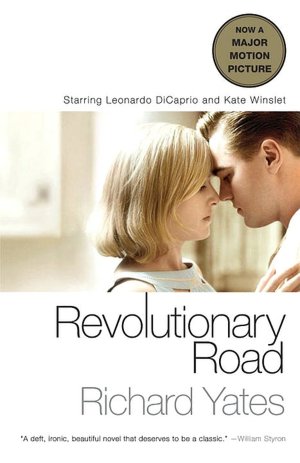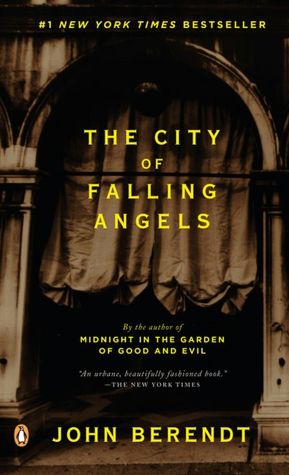47) "The House at Tyneford" by Natasha Solomons
A friend offered to let me borrow this because I loved "The Forgotten Garden" so much. Parts were very reminiscent of "Ella Enchanted" (my favorite book of all time), and it was very good. Elise is a Jewish teenager living in Austria in the late 1930s with her famous parents, Anna and Julian. Their community begins to disintegrate as Hitler ascends to power, and Anna decides that the family should emigrate to America. While Anna and Julian are assured they can get work visas in America, they know Elise will not be so lucky, so Elise looks for work in England as a housemaid. She is hired by Mr. Rivers of Tyneford and goes to work in his household, but with her former, glamorous life and an unusual romance, she can be neither part of the household staff nor part of the family for which she works.
48) "Revolutionary Road" by Richard Yates
I did not like this book. It was a bunch of unhappy people, being unhappy and doing nothing to make their joyless lives any better — just complaining all the time, while being immature and lazy and pretentious. The description on the back of the book ("... the story of Frank and April Wheeler, a bright young couple ... bored by the banalities of suburban life and long to be extraordinary") was entirely misleading, because they weren't bored or longing for anything — they were miserable and snobby (without having any reason to be either of those), and they were unwilling to do anything about it except continually cheat on each other. Zero stars.
49) "Wuthering Heights" by Emily Brontë
I enjoyed "Heights"; it was kind of messed up. I can see why some people don't like it; I found parts to be confusing, especially since Brontë used the characters' first and last names interchangeably, and too many characters had the same names. (Seriously: Hindley Earnshaw, Hareton Earnshaw, Catherine Earnshaw Linton, Edgar Linton, Isabella Linton, Linton Heathcliff, Catherine Linton Heathcliff. Impossible.) Anyway, it follows the families of two neighboring manors; the Lintons of Thrushcross Grange and the Heathcliffs of Wuthering Heights. Mr. Heathcliff is pretty much pure evil, and covetous of his neighbor too. He manipulates and brutalizes everyone in his life in order to get what he wants, including his own manor, custody of his child, the Lintons' property and estate through the forced marriage of Linton's daughter ... and yet he's still totally miserable. A pretty good read.
50) "Once Upon A Day" by Lisa Tucker
The cover on this one is misleading, because this is one effed up book. Dorothea is a sheltered young woman — literally, her father kept her and her brother Jimmy in a "sanctuary" away from the rest of the world in order to "protect" them after their mother's tragic death. But when Jimmy runs away to Missouri and their father falls ill, Dorothea makes it her goal to find Jimmy and bring him back home. Upon arriving at the bus station, Dorothea meets Stephen, a doctor-turned-cab driver who is attempting to get over the loss of his wife and daughter. Their friendship helps her to get used to the strange world she had never experienced, and helps to uncover the secrets that her father would have done anything to keep his children from finding out.
51) "A Christmas Carol" by Charles Dickens
Somehow, I'd never read this before, despite knowing the story and having seen the "Scrooge McDuck" cartoon (and a Muppets version?) and even being in the play when I was little. (I blame the fact that I got to "Great Expectations" first and decided none of Dickens' other books were worth reading.) It was actually quite good, and now I'm actually considering picking up more of his books, now that I'm not forced to read them for school. In "Christmas," the miserly Mr. Scrooge is visited by three Spirits (the ghosts of Christmas Past, Present and Future) and learns that if he doesn't change his stingy, mean ways, his own life won't be the only one that suffers.
52) "The City of Falling Angels" by John Berendt
The entire time I was reading "City," I wanted to go live in Venice (and I still do now that I'm done). In the first few pages, a man describes Venetians as prone to exaggeration, so clearly I was born in the wrong country. "City" was non-fiction, but most of it read like a novel. It chronicled the author's time living in Venice in the aftermath of a fire that destroyed the Fenice opera house and the subsequent attempts to rebuild it "as it was, where it was." It also delved into the politics of restoration in Venice, and all the drama that went on behind the scenes as organizations came forward to try to rebuild the Fenice and various other palazzos. The nature of Venice as a whole compared to elsewhere in the world awed me. I really hope to see it someday.
Do you have a reading goal for 2013? What is it?







No comments
Post a Comment